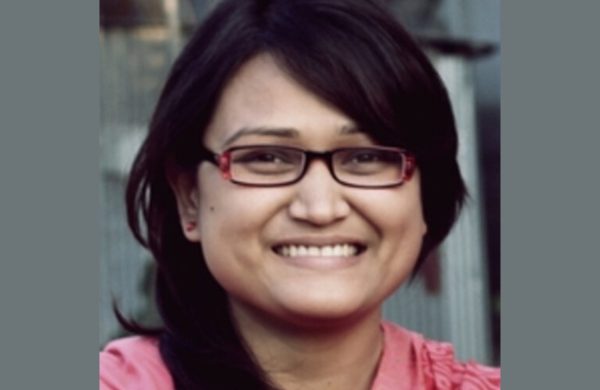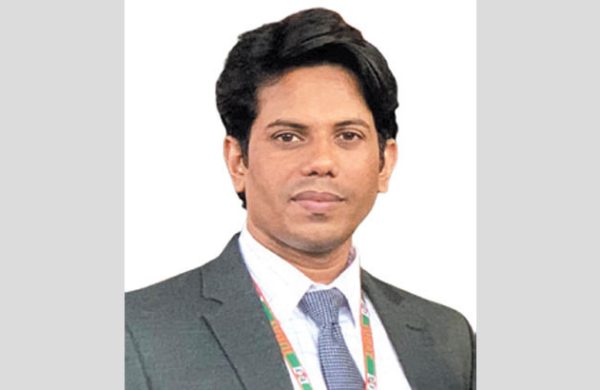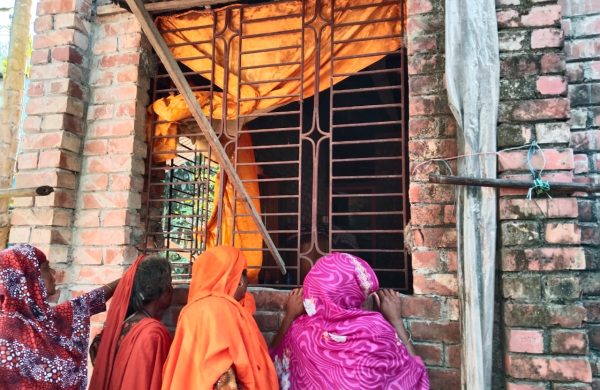Pushed into Nowhere
- Update Time : Monday, July 21, 2025

—Kaniz Kakon—
One quiet morning, beside the curling flow of the Brahmaputra River, an elderly man stood staring past the barbed fence, clutching a worn-out photograph as if it were the last thing tethering him to a life he once knew. He was barefoot. His name was Abdul Karim, though that name no longer meant anything to the uniformed men who had just forced him to cross into a country that had never been his. They called him a foreigner. But to Karim, the border was a fiction.
His childhood was spent in Assam. His wife lies buried in Goalpara. And yet, now, he walks uncertain steps into a land where he has never lived, holding memories like contraband. Stories like Karim’s are not rare anymore—they are unfolding along India’s eastern border with growing, terrifying frequency.
In the name of law and order, people are being made strangers in their own land. There is no paperwork to appeal to, no court to plead in. They are just… gone. Left to vanish into a no-man’s-land where neither India nor Bangladesh will claim them. Hannah Arendt’s words ring chillingly true here: the true horror of being stateless is losing not just your rights, but your very right to have rights.
This is not simply another crisis over borders or undocumented migration. What is unfolding in Assam, West Bengal, Gujarat, and even parts of Delhi, feels more like a slow, silent purge. Thousands—primarily poor, Bengali-speaking Muslims—are being rounded up and accused of being illegal Bangladeshi immigrants. No trial. No notice. Only rumours, raids, and removal. In some cases, entire families have been split overnight, the husband taken and dumped across the border, while the wife and children are left to fend for themselves. The situation on Bangladesh’s side is equally grim. Initially, some of those “pushed back” were accepted quietly to avoid tension, but as the numbers increased, Bangladesh has begun rejecting them, sending many back across the fence.
These people—caught in an endless loop—are now unwanted by both countries. They are ghosts of geopolitics. And in their exile, one sees a sinister pattern: nationality has become a weapon, borders a battleground, and being Muslim, Bengali, and poor has turned into a curse. Giorgio Agamben’s concept of the “state of exception”—where normal laws are suspended to justify extraordinary cruelty—is not just theory here; it’s daily practice.
What makes this all the more heart-breaking is how easily these lives are erased. These people are not anonymous migrants from afar—they are labourers, rickshaw pullers, vegetable vendors, masons, tea-sellers. They lived next door. They sent their children to local schools. Some even had voter IDs or Aadhaar cards, now torn up or simply ignored. Citizenship, which should provide safety, is being twisted into a gatekeeping tool—something granted selectively, withheld deliberately. The NRC (National Register of Citizens) in Assam may have lit the fuse, but the fire has spread far beyond.
It is not just about legality—it is about identity. Being considered Indian has become conditional. A whisper that you are from “the other side” is enough to get you disappeared. And because these people are poor and powerless, there’s no one to speak for them. Human rights scholar Jack Donnelly has argued that rights are not fixed abstractions—they are only real when they are recognised and protected. What is happening here shows just how fragile that recognition can be. One stroke of suspicion, and you’re no longer a citizen. You’re a shadow.
The stories are devastating. Fatema Begum, seven months pregnant, watched her husband being dragged away by plainclothes officers in Barpeta. She has not heard from him since. A teenager named Iqbal fled Gujarat after he was picked up twice and threatened with deportation. “Why would they say I’m Bangladeshi?” he asked. “I’ve never even been there.” His voice trembles when he speaks of the night his father’s voter card was burned by a local official.
On the Bangladeshi side, some local mosques have started collecting donations to feed the displaced. But it is not sustainable. Bangladesh can barely support its existing vulnerable populations, let alone absorb hundreds or thousands of confused, stateless people with no home to return to. This is a human tragedy, no doubt. But it is also an epistemic injustice—a refusal to even listen to people’s lived experiences. Their testimonies are dismissed, their memories disregarded, their truths made irrelevant. The result? People who do not just lose their place in the world, but their voice in it.
And now, the silence around this crisis is perhaps the most terrifying part. While civil society raises alarms here and there, the broader political and international community seems too numb or too distracted to care. This is not just about border security or paperwork anymore—it is about whether we, as a region, can still see each other as human beings beyond the lines drawn on a map. If identity becomes a matter of suspicion, if citizenship is granted only to those who “fit” a majoritarian idea of belonging, what future awaits us? Where will such exclusion stop? Philosophers like Seyla Benhabib have argued that rights should emerge not from rigid legal documents, but from shared democratic practices—of recognition, solidarity, and ethical listening.
If that spirit dies, what remains? These pushed-back people—wandering in uncertainty—may be without documents. But they are not without stories, not without grief, not without the need for justice. In the end, we must ask: what kind of nations do we become if we no longer recognise the people who built them with their hands?
————————————————————————-
The writer is an Assistant Professor in the Department of Philosophy at IUBAT and pursuing a Masters in Human Rights and Multiculturalism at University of South Eastern Norway.



















